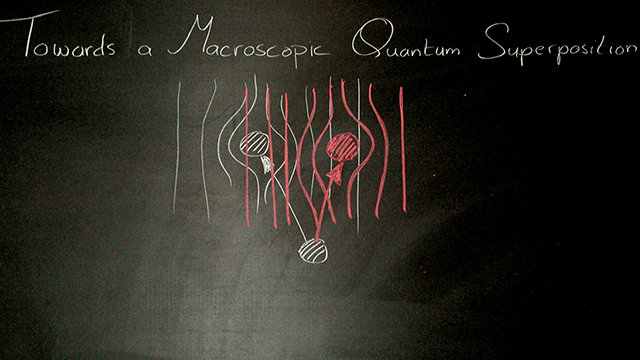Latest Articles
To Settle Infinity Dispute, a New Law of Logic
To determine the nature of infinity, mathematicians face a choice between two new logical axioms. What they decide could help shape the future of mathematical truth.
Physicists Eye Quantum-Gravity Interface
Physicists have devised experiments that can probe the interface between quantum mechanics and general relativity.
Search Escalates for Key to Why Matter Exists
Physicists have completed a new round of searches for the answer to why matter dominates over antimatter. But the radioactive decay that would solve the puzzle is evading them.
A Digital Copy of the Universe, Encrypted
As physics prepares for ambitious projects like the Large Synoptic Survey Telescope, the field is seeking new methods of data-driven discovery.
A Jewel at the Heart of Quantum Physics
Physicists have discovered a jewel-shaped geometric object that challenges the notion that space and time are fundamental constituents of nature.
Physicists Close In on ‘Perfect’ Optical Lens
Researchers are making progress toward a “perfect lens” that will be able to resolve an organelle assembling a protein or a virus attacking a cell.
As Machines Get Smarter, Evidence They Learn Like Us
Studies show that computer models called "neural networks" behave strikingly similar to actual brains when performing certain tasks, suggesting the two may learn in the same way.
Signs of a Stranger, Deeper Side to Nature’s Building Blocks
New findings suggest that beneath the surface of quantum theory lies a vibrant string theory world where some matter corresponds to black holes in higher dimensions.
In Lopsided Map of the Cosmos, a Glimmer of Its Origins
Theoretical cosmologists are piecing together a cosmic origin story from a surprising anomaly in the recently released Planck satellite image.









